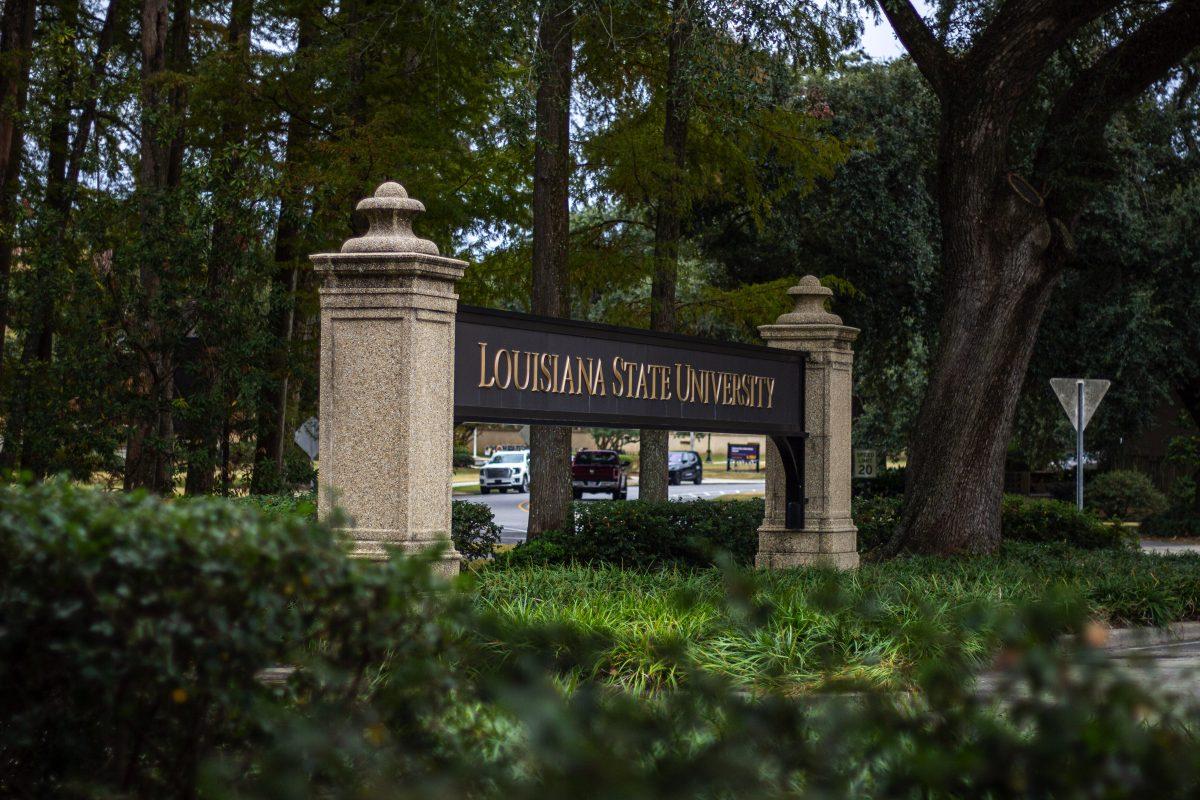For the 2018-19 school year, freshman applications to the University were evaluated beyond just standardized test scores and GPAs. LSU President F. King Alexander and his administration ushered in an overhaul of the University’s admission policy, advocating for “holistic admissions.” The policy change sparked fiery internal debates throughout the state and within the LSU community, spilling over into The Advocate’s and opinion columns.
“Holistic admissions” de-emphasize standardized tests such as the ACT and SAT, and instead evaluate applicants using recommendation letters, personal essays and extracurricular activities, among other things. The notion of holistic admissions attempts to define an applicant’s mentality and work ethic over the duration of their high school experience, taking into consideration factors not accounted for in standardized testing and GPAs.
The University also experienced its largest freshman class this year with over 5,800 students. Previously, the largest freshman class was 5,725 in 2012. The current freshman class is a remarkable turnaround for the University, which saw freshman enrollment drop below 5,000 in 2017 for the first time since 2009.
“We want to read the essays about what these students have accomplished over a four-year period, not just the two digits,” Alexander said.
The University’s previous admissions standards required a 22 on the ACT and a 3.0 GPA. A Louisiana Board of Regents effort to raise university standards throughout the state in the early 1990s led to the minimum requirements, as LSU transitioned from an open-access university to the state’s flagship institution.
The relaxation of those admissions standards for the fall 2018 freshman class caused sharp backlash for Alexander and the University. Louisiana Board of Regents member Richard Lipsey headlined the public with opposition to the holistic admissions policy through his community organization group, Put Louisiana First. The group posted a Facebook image of Alexander wearing a crown with the caption, “We must stop King Alexander from lowering standards at LSU!”
In response, Alexander defended the policy in an opinion column published in The Advocate on Sept. 5. A day later, Lipsey fired back with a column of his own, criticizing Alexander for lowering LSU’s standards.
“LSU has proved since 1991, higher standards have attracted better students,” Lipsey said in an interview with The Daily Reveille. “We have made steady increases every year. It ain’t broke, so don’t try to fix it.”
Lipsey emphasized he is not speaking on behalf of the Louisiana Board of Regents, but merely expressing his personal thoughts. The Board of Regents created admissions standards for LSU and Louisiana’s other public colleges in 1991.
“Mr. Lipsey is worried about what happened in 1984-85 when we went from an open-access university to putting some restrictions based on [ACT scores],” Alexander said in an interview with The Daily Reveille. “Today we have better tools, we have better research [and] better portfolios of students. We are not doing away with the ACT. We are not doing away with GPA. We are just looking at students more comprehensively.”
The University witnessed a rise in its median ACT score since it first implemented admission requirements. The incoming freshman class had an average ACT score of 20 in 1987, according to the University’s Office of Budget and Planning. Now in 2018, the average ACT score of incoming students is a 26. Despite small drops, the University’s average ACT score has risen over five points since the original admissions standards were implemented. Graduation rates have also increased about 16 percent from 1992-2011.
The LSU Faculty Senate voted to move towards a more holistic admissions process in 2006. Faculty Senate Resolution 06-06 called for the University “to move to a more competitive and holistic admission model that will provide more flexibility for LSU to recruit and retain top students.”
“Realistically, the faculty are not going to stand for lowering of standards,” said LSU Faculty Senate President Ken McMillin. “I am willing to give holistic admissions a chance. If we continue to have the best and brightest students, if we continue to maintain or increase our average GPA and ACT scores of incoming students and we have a better graduation rate, then how can it be a bad thing? At this point in time, it’s more political rhetoric than what the data shows. As a scientist, I always look at the data.”
Opponents of holistic admissions, like Lipsey, point to the injected subjectivity into the admissions process as a potential shortcoming of the policy. They fear holistic admissions may become a mechanism to admit unqualified children of powerful donors and influential policymakers.
“It makes the admissions process go from a very objective standard to a very subjective standard,” Lipsey said. “It opens it up to a very bureaucratic process. Louisiana has been known for 100 years to have a political bureaucratic hierarchy that gives power to people. Having objective standards avoided that and people knew it.”
LSU Vice President for Enrollment and Chief Enrollment Officer Jose Aviles is no stranger to holistic admissions. Aviles led the transition to holistic admissions at his previous academia homes, the University of Buffalo and the University of Delaware. Both universities experienced record-breaking freshman classes in recent years. Aviles’ last incoming freshman class in fall 2017 at Buffalo was the first in school history to eclipse 4,000 students. Delaware set a record for total enrollment in 2017.
Aviles rejected the notion that holistic admissions are a way to increase enrollment and tuition revenue at the cost of lowering standards.
“It doesn’t do anybody any good to admit students who aren’t adequately prepared for the rigorous academic experience at LSU,” Aviles said. “The worst thing we can do as an admissions office is to provide the opportunity for a student to be on the campus when you know in your assessment that the student isn’t ready.”
The University’s embrace of holistic admissions reflects changing national trends. Of the U.S. News & World Report’s Top 50 Public Universities, only the University of Iowa and the University of Alabama do not incorporate holistic review into their admissions process.
“The majority of our peers, outside Arkansas and Mississippi State, in the SEC do it this way,” Alexander said. “We are about five or six years behind.”
Despite the national movement toward holistic admissions, Lipsey remains skeptical, specifically targeting comparisons made by Alexander to peer institutions, such as the University of Texas at Austin.
“It tells a story opposite of what President Alexander is saying,” Lipsey said. “They take the best of the best. Texas takes the best of the best. Texas has 60,000 students and a 29 average ACT [score].”
The debate on holistic admissions is far from finished. Though the effects from it may not be witnessed for years to come, the current rhetoric on the issue remains strong.
“I’m opposed to the holistic method which President Alexander has started, and I disagree with the things he’s done at LSU,” Lipsey said. “I don’t think he’s taking LSU in the right direction, and I’ll just leave it at that.”
LSU President defends ‘holistic admissions’ policy against criticism from member of Louisiana Board of Regents
By Caleb Greene
September 18, 2018
More to Discover










